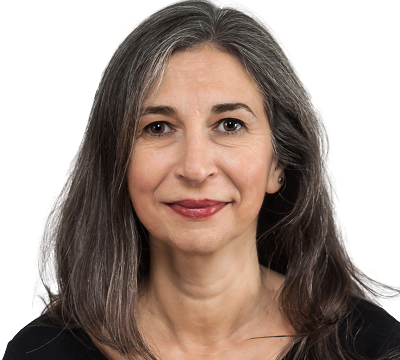Hungarian Glocal Eco-creativity
 Interviewing Dr Judit Farkas, by Dr Maria Nita, ahead of the Eco-creativity Conference, November 2020
Interviewing Dr Judit Farkas, by Dr Maria Nita, ahead of the Eco-creativity Conference, November 2020
Maria: Can you tell us a bit about your research?
Judit: I am a cultural anthropologist and I've been doing ethnographic research with Hungarian environmentalists for more than 10 years. Initially, I looked at this topic because I had done my doctoral research with Christians in India, and they had an eco-village. So, I started looking at this link between humans and nature in the context of the village. It is a hot topic now, and I am really interested in looking back over my early research to examine the history of eco-villages, their roots in international intentional communities and green movements…
Maria: The link with the international communities and movements, like the Hare Krishna movement, it is quite clear now that you mention it. It's wonderful that that you can see that continuity.
Judit: Yes, absolutely. Yes. I can see that I have remained in my field, on my journey from ecovillages and intentional communities to today’s climate movement… I have looked at key aspects where this continuity is apparent, like ‘food’, their spatial practices and their concept of ‘freedom’. I am interested in the way they tell the stories of their lives, as an interconnected narrative of their own life stories and lifestyles, and the histories of their ecovillage…
Maria: I know you found that women are more drawn to this lifestyle. Can you say anything about that?
Judit: It is one of my favourite topics. I was really interested in how these women live their everyday lives, their ecological way of life, and how they decided to move out to the countryside. It is not an easy lifestyle: there are many difficulties, children, and a lot of hard work… And they still have their own wants and desires, outside of the ecological lifestyle. I have known many of them for years, so I can see their life story unfolding in the past 11 years…
Maria: And does that show that they've stayed true or committed to their ecological life-styles? It is not just the trend, but real commitment. It is fantastic that you've been able to do this longitudinal study that shows their eco-village journey.
Judit: Well, I have also interviewed women who ended up quitting their eco-village communities and moved back to the city.
Maria: Fascinating. What will you be talking about in your forthcoming Keynote paper on ‘Hungarian Glocal Eco-creativity’?
Judit: I want to put Hungarian eco-creative movements and activities in historical and global perspective. I want to look across the Hungarian green landscape: from global movements like Extinction Rebellion and Fridays for Future, to local eco-villages.
Maria: I am really interested in learning more about how these global movements – Extinction Rebellion and Fridays for Future – have adapted to Hungarian culture. I look forward to your paper.
Request your prospectus
![]()
Explore our qualifications and courses by requesting one of our prospectuses today.
